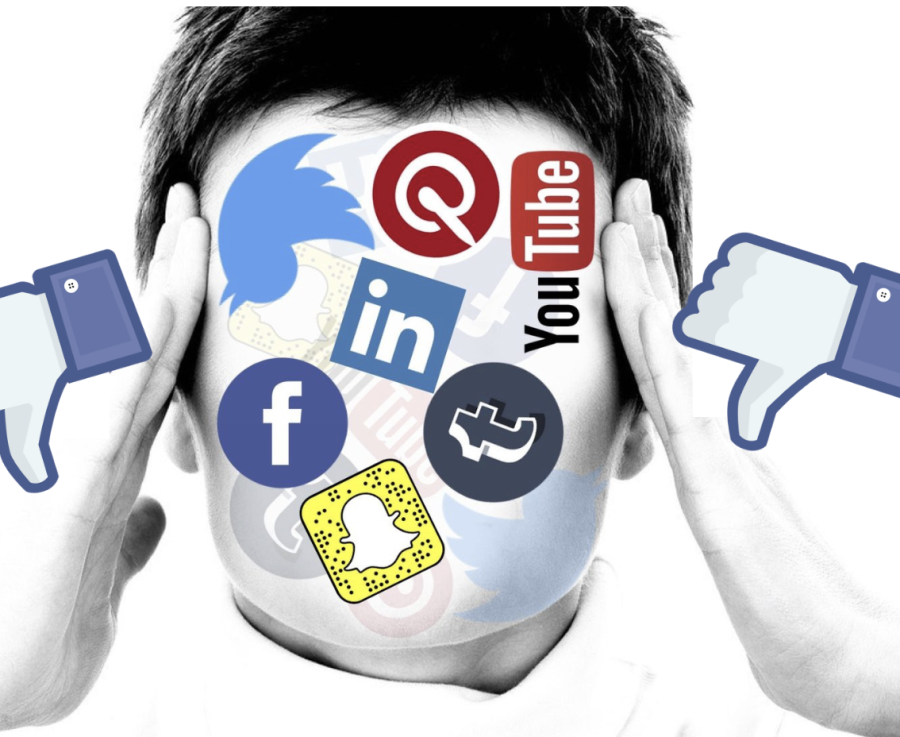Effects of Social Media
The rate of teenage suicide has been increasing over the past years, and social media has played a role in the consistent number of cases. While social media may be a source of support, it can stress teenagers. Teens may be part of extensive social networks providing virtual support and connection, but they can also become exposed to cyberbullying, cyberstalking, and many other online dangers. Social media has also been linked to higher anxiety, depression, loneliness, and body dissatisfaction in teens, which can increase the risk of suicide. Additionally, teens are more likely to engage in impulsive behaviors because of the anonymous nature of the platform, which can lead to them making dangerous decisions. Unfortunately, all of these factors have contributed to the growing prevalence of suicide among teens.
Social media has a detrimental impact on mental health, particularly among teenagers. Negative effects, such as cyberbullying, comparison, and the mindset to present a perfect image of themselves, can lead to various issues, such as loneliness, self-esteem problems, and anxiety. According to a Pew Research Center survey conducted in April-May 2022, almost half (46%) of U.S. teenagers aged 13 to 17 report they have experienced at least one of six cyberbullying behaviors. 14% of the students surveyed admitted to cyberbullying others at some point in their lifetime in 2021, with name-calling (32%) and posting mean comments (5.2%) being the most common forms. Around 37% of students reported experiencing cyberbullying, 6.5% admitted to cyberbullying using multiple mediums, and 16.5% reported cyberbullying in 2019. It is, therefore, apparent that social media has negative consequences for mental health. Research conducted over the years showed how social media use is associated with a high risk of mental health issues. As parents, school staff, and other community members, it is essential to teach younger people how to use social media responsibly and to ensure they are aware of the risks associated with its usage.
Frequent social media use is increasingly linked to suicidal originality among adolescents, evidenced by a recent study that examined the harmful effects of spending hours on Twitter and Facebook on mental health. With suicide now the second leading cause of death for youth aged 10-24, social media is a significant risk factor in exacerbating and perpetuating suicidal thoughts. Research has revealed how exposure to suicide-related content and online communities that promote self-harm can create a contagion effect, influencing adolescents to develop more serious suicidal tendencies and potentially making them more likely to attempt suicide. For example, two young men, Abraham Biggs, and Paul Zolezzi, used social media to broadcast their suicides. In addition, online cyberbullying has been linked to teen depression, further contributing to the likelihood of suicidal behaviors. It is thus essential for caregivers to become digitally literate and recognize warning signs of excessive social media use to combat best the harms of social media on adolescent mental health.
Parents, schools, and social media platforms must work together to reduce the negative effects of social media on teenage mental health. Studies have found that social media use could lead to sleep problems, anxiety, depression, and body image concerns. Parents can discuss healthy boundaries with their teens and help reduce how much time teens spend online. Schools can support teens by providing mental health services, teaching media literacy classes, and establishing no-phone policies. Social media platforms can also change their policies and algorithms to reduce harmful content and provide mental health resources to teens. Furthermore, platforms should create methods of flagging or reporting harmful content and educating teens on cyberbullying. By working together, parents, schools, and social media platforms can help protect teens from the potentially negative effects of social media.
In conclusion, social media substantially impacts teenage mental health and can contribute to an increased risk of depression and suicide. The prevalence of cyberbullying, digital peer pressure, and unrealistic beauty standards have all damaged many young adults, leading to self-doubt, isolation, and despair. It is essential that all stakeholders, including parents, schools, and social media companies, work together to mitigate the negative impacts of social media and create a safer online environment for teenagers. This includes educating teens about the risks of social media, monitoring their online activities, and offering support when needed. By understanding the dangers of social media and addressing its effects on mental health, we can help to prevent teenage suicide and promote healthier online communities.





